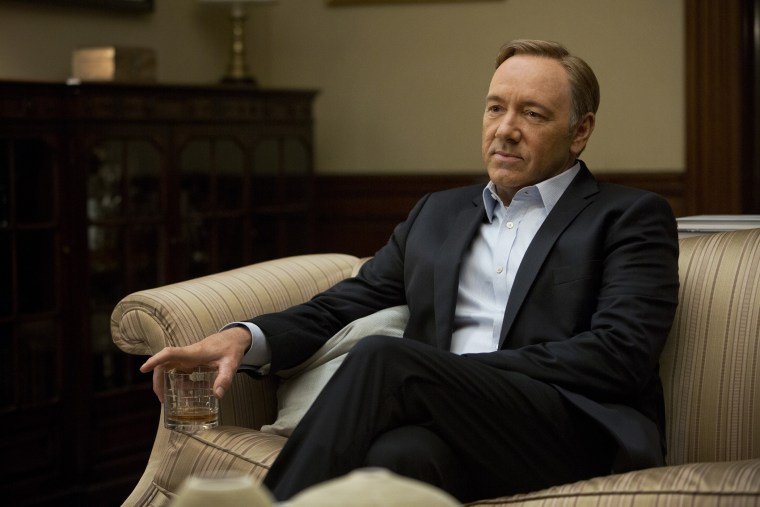THE real-life "House Of Cards" producers MAY not BE as savvy as their conniving protagonist. Late Monday night, just before the end of the 2014 Maryland General Assembly session, the Legislature rejected a measure to provide millions of dollars in additional tax breaks to the Netflix series. Doing ITS best Frank Underwood imitation, the production company behind the series threatened to leave the state if lawmakers didn't dole out additional tax dollars to keep its filming location in Baltimore.
The show has received over $26 million in tax credits so far, and had hoped to receive as much as $15 million dollars to film season 3 in the state. In a bid to whip actual votes from Maryland lawmakers, ACTOR Kevin Spacey—who plays the unscrupulous, murderous Frank Underwood on the show—even met with lawmakers at reception in late March.
But it was not enough. In the end, the negotiations devolved into a stand-off more reminiscent of the HBO series "Veep" than "House Of Cards." The Washington Post sums it up:
Sen. Verna L. Jones-Rodwell (D-Baltimore) compared the debate to a men’s anatomical measuring competition. House Majority Leader Kumar P. Barve (D-Montgomery) announced that he prefers the British version of “House of Cards.” And Sen. Roger Manno (D-Montgomery) lectured on the economic benefits of the film tax-credit program — largely a conversation with himself.
The failure is not just a story of producers trying to out-Frank Underwood actual legislators. It speaks to the larger pressures on states and the federal government to offer enormous tax incentives to keep businesses in their state.
According to the Baltimore Sun, forty-two states now offer rebates or tax credits to film or TV productions. Maryland’s incentives fall somewhere in the middle of the pack. The biggest recipients of tax subsidies are large manufacturing companies—often the largest employers in the state. Boeing, by far the biggest recipient of state and local tax breaks, has received over $13 billion (most since 2009).
As Frank Underwood once said: “I don’t know whether to be proud or terrified. Perhaps both.”
